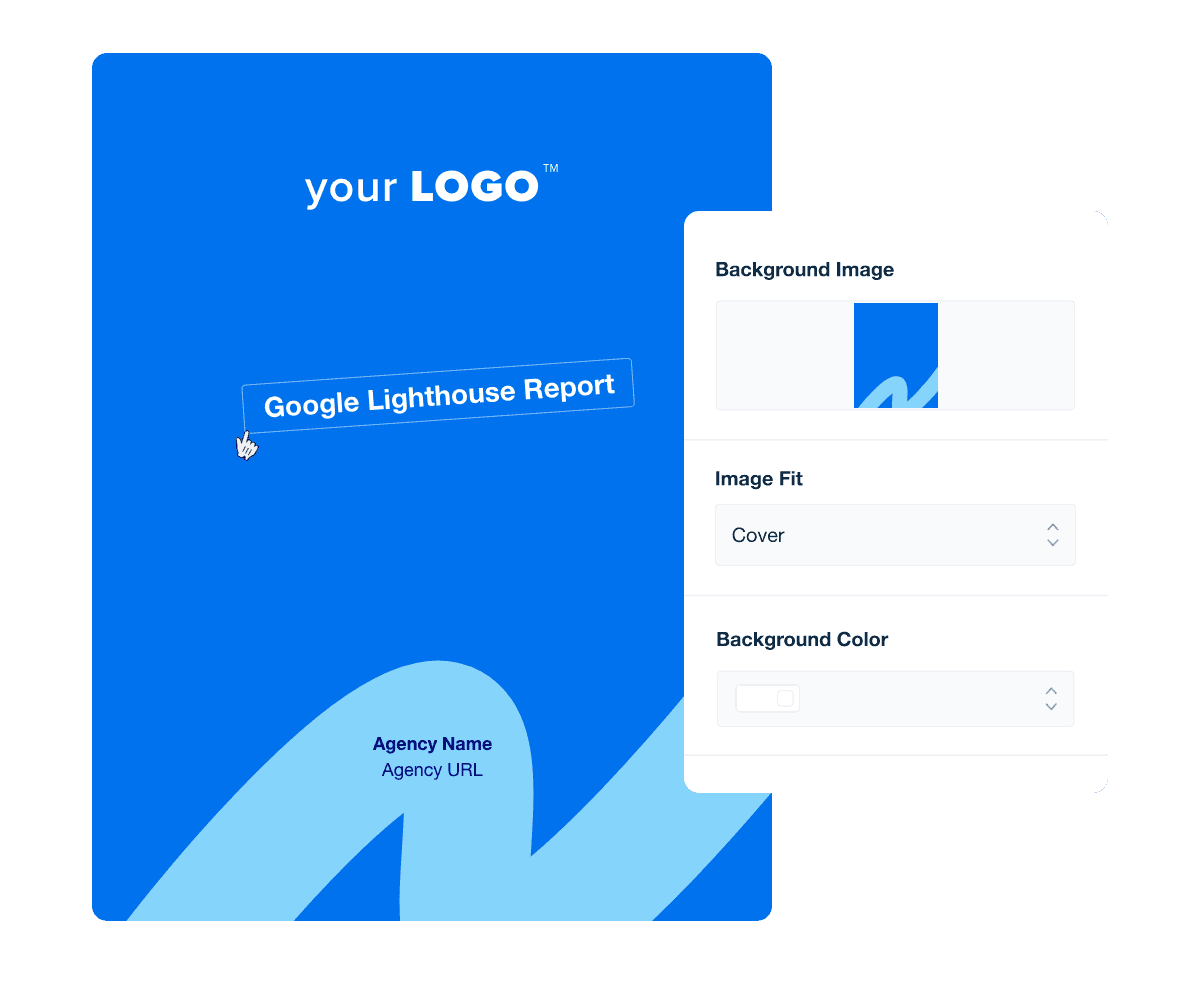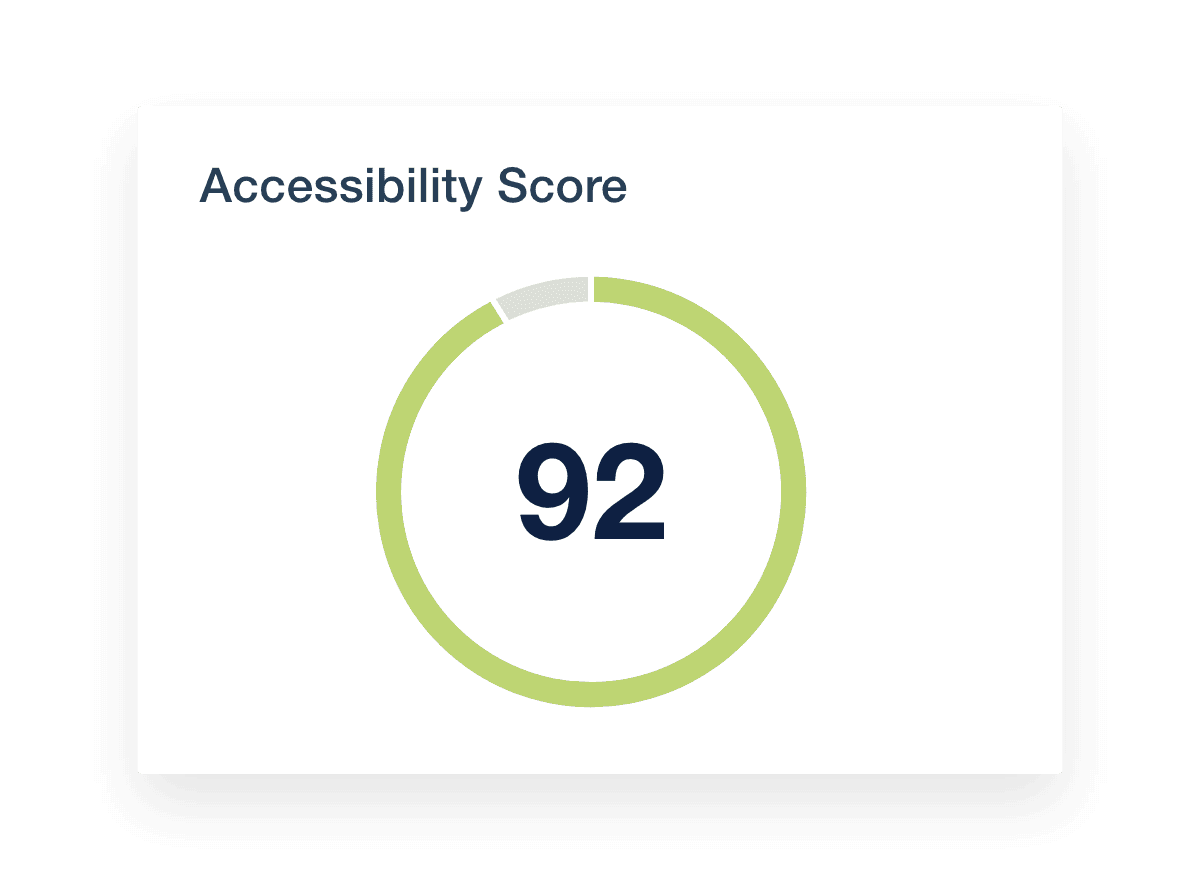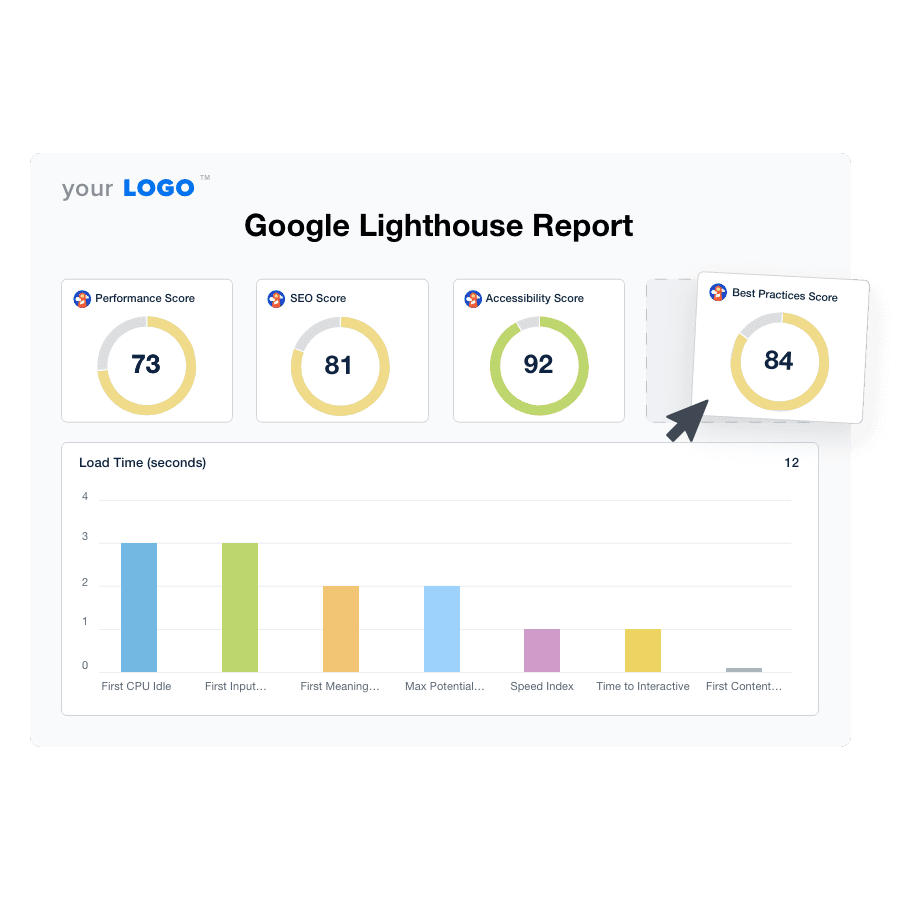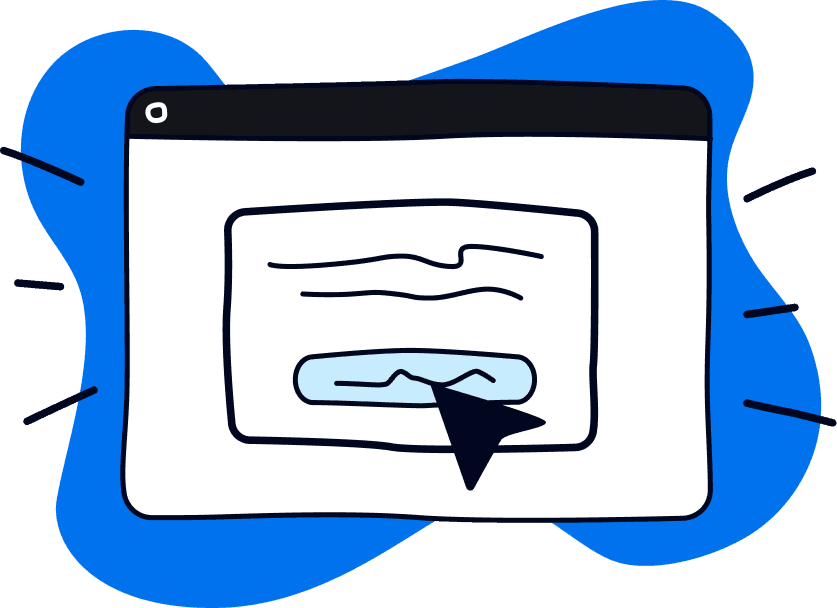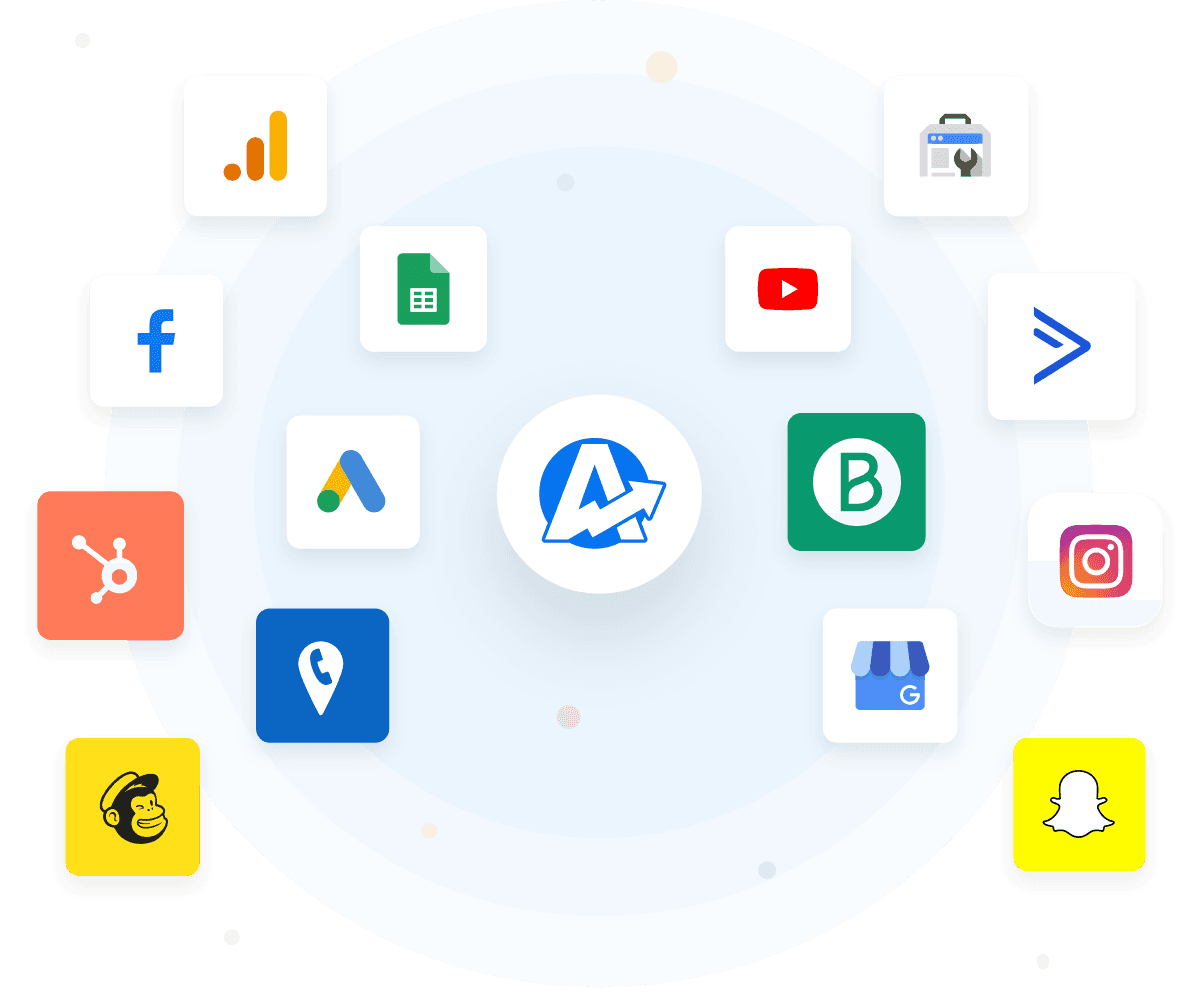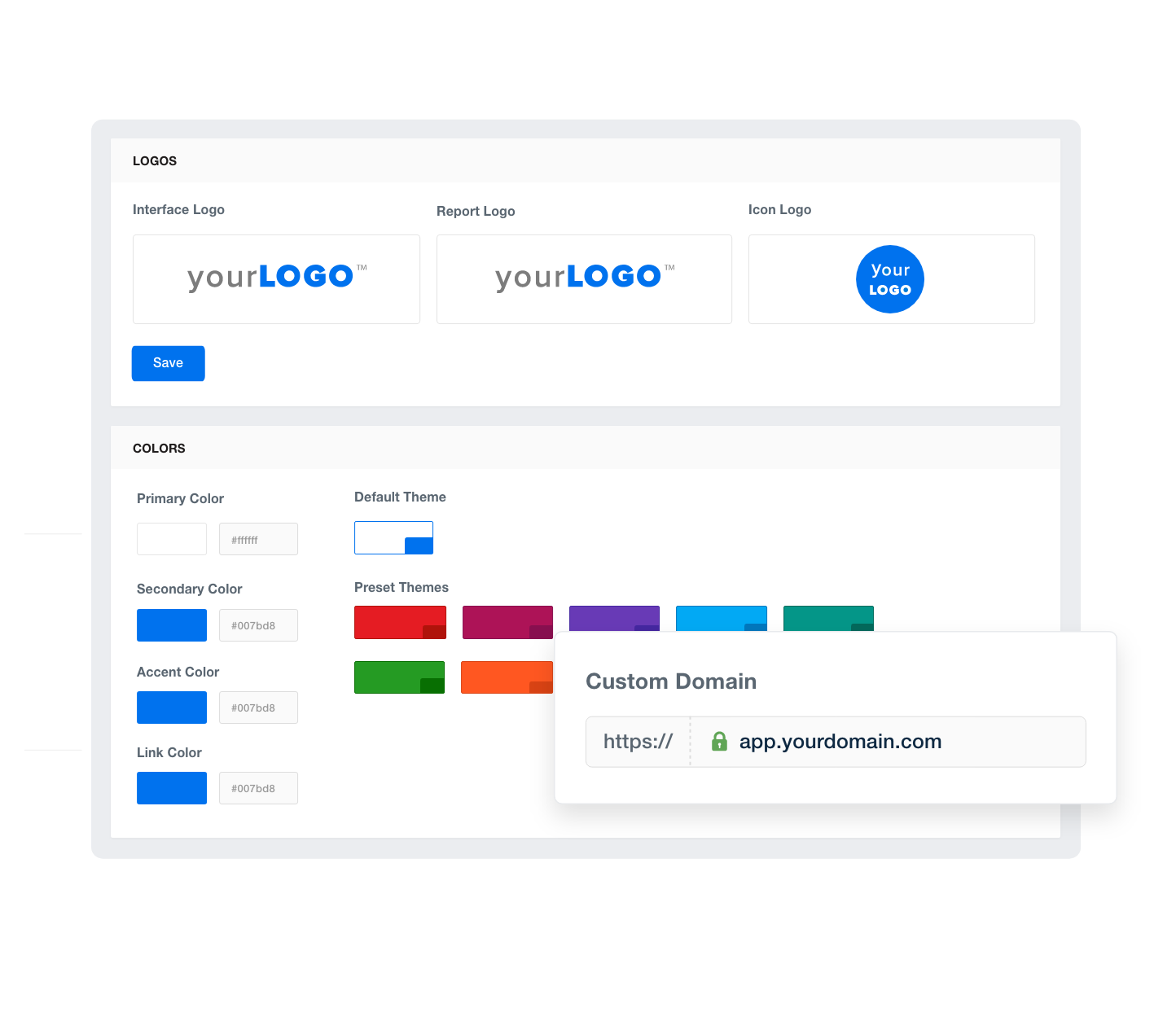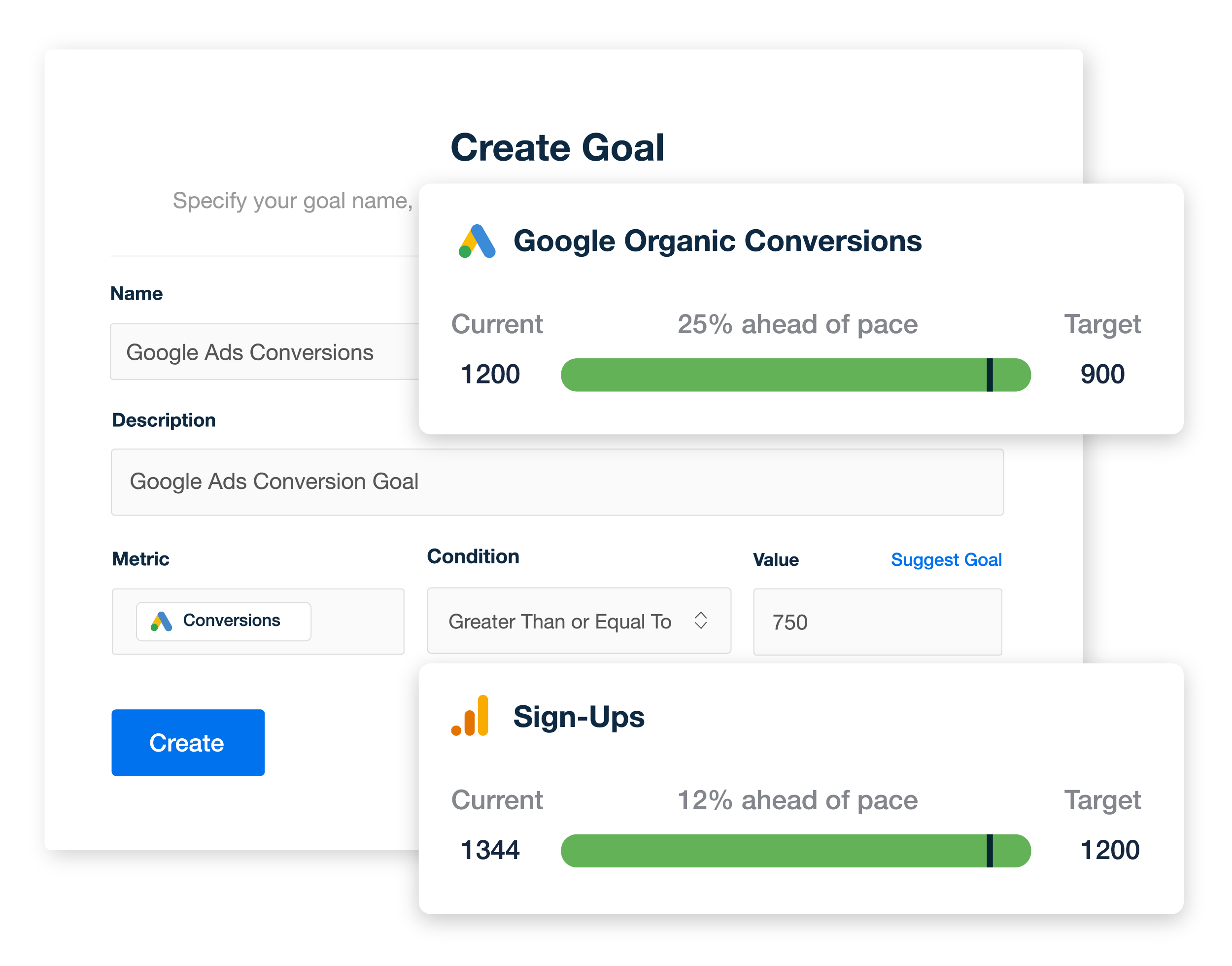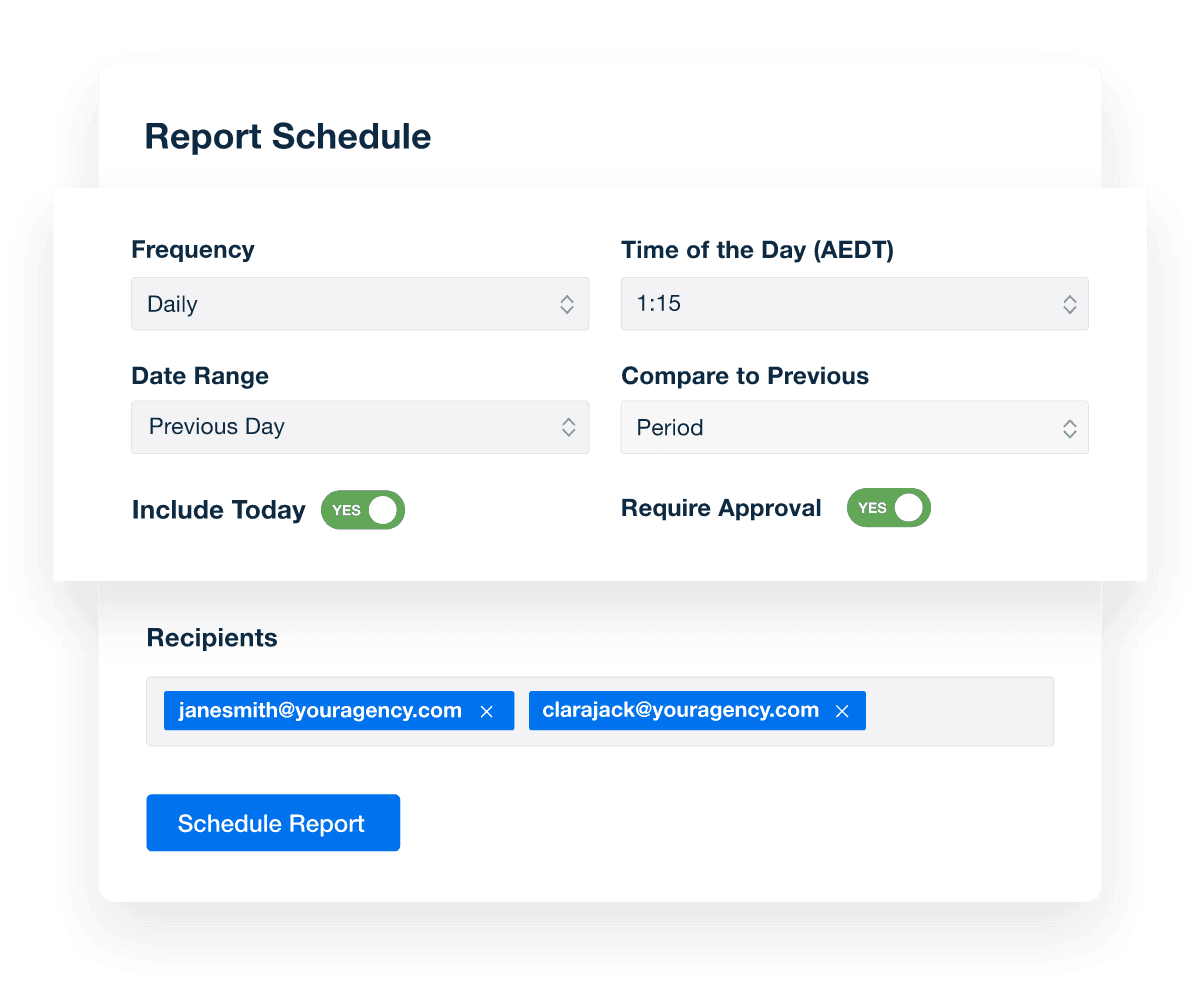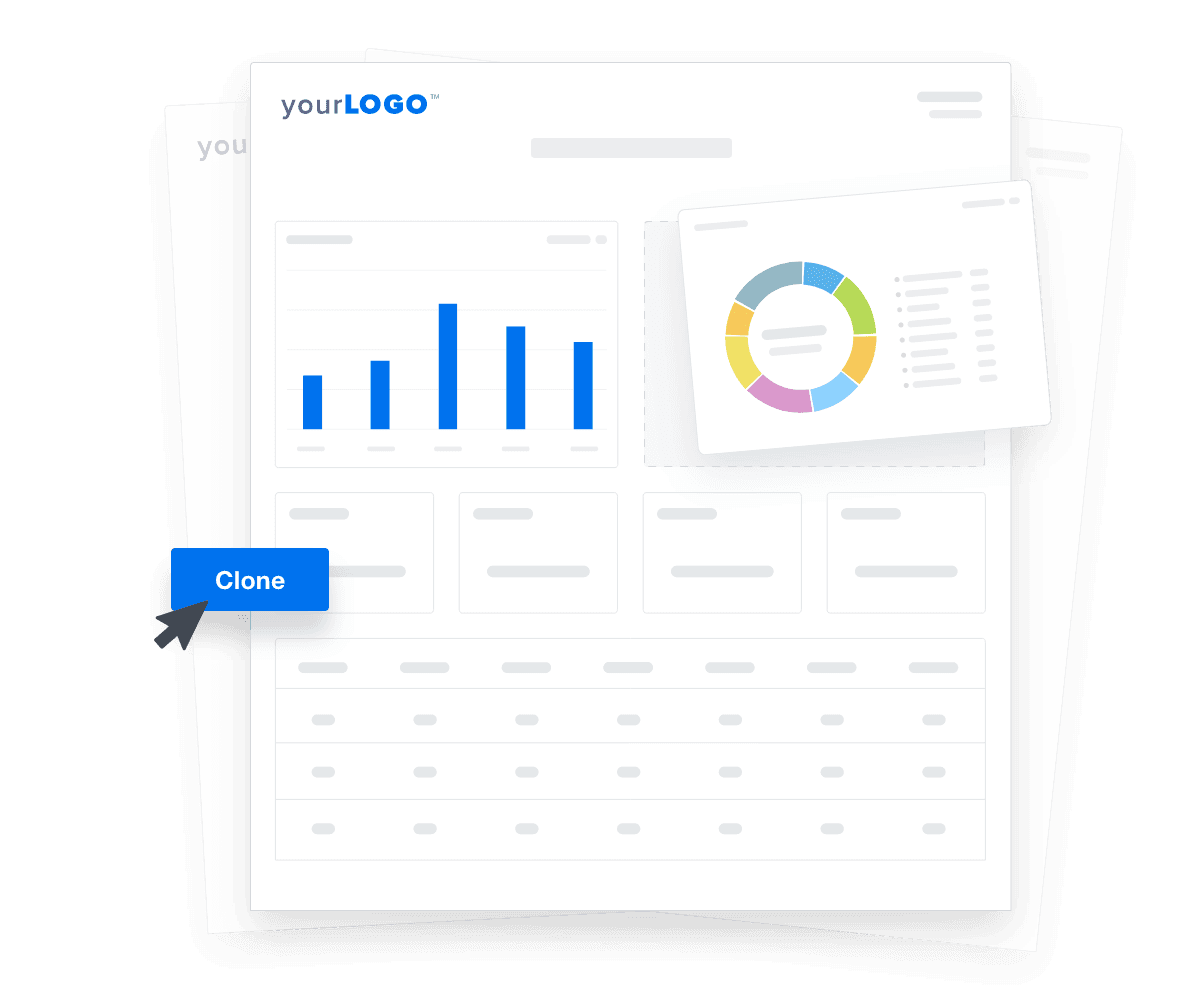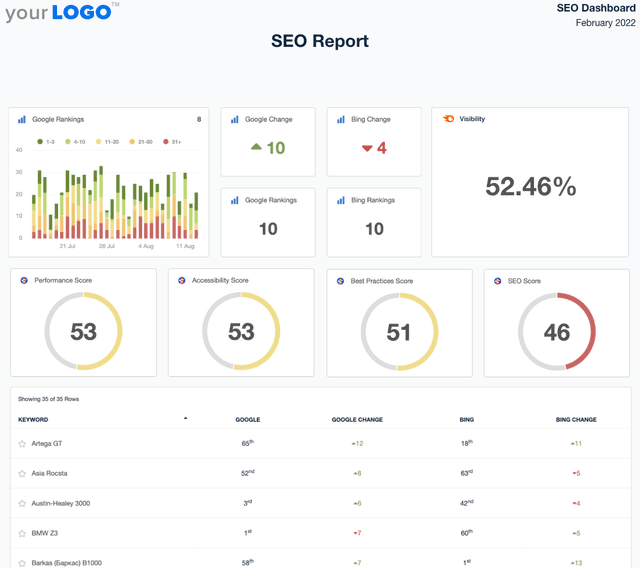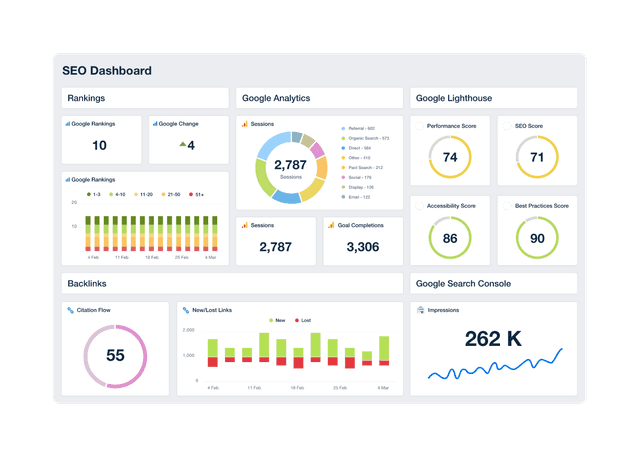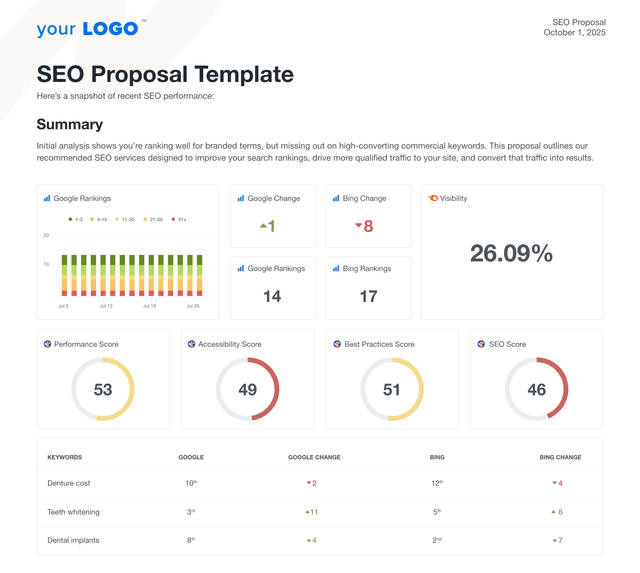Google Lighthouse Report Template for Faster, Data-Driven Insights
Customizable Google Lighthouse Report Templates That Clarify Technical SEO
Transform detailed Lighthouse site audits into polished, client-ready reports that highlight what matters most—Core Web Vitals, performance scores, accessibility, and SEO best practices. Customize layouts, apply your agency’s branding, and pull in live data automatically, so there’s no need to manually compile complex audit results.
Deliver clear, actionable insights that help clients understand site performance and reinforce your agency’s expertise in technical SEO.
Custom Google Lighthouse Reports as Unique as Your Agency
Create SEO Reports in Minutes–Not Hours
Experience the dual benefits of time savings and increased accuracy with automated report templates and data retrieval.
This streamlined process ensures that your agency delivers precise, error-free reports faster than ever. Meet deadlines with ease and maintain a high standard of quality in every client interaction.
8 Key Sections Included in the Customizable Google Lighthouse Report Template
